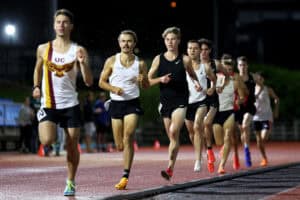Many athletes ignored ASA's requirement to compete at two Grand Prix meetings on the domestic circuit this year, in order to be selected for national teams.

Criteria is obviously important when selecting a team in any sport, but that criteria also needs to be reasonable.
In track and field, it’s standard for the national federation to require athletes to compete at the SA Championships, which makes sense.
Athletics South Africa (ASA) do offer exemptions for individuals who are ill, injured or not based in South Africa, so it’s not an unreasonable request.
In some ways this season, ASA has offered athletes more leeway than usual. In other ways, however, the federation has been too pushy.
Though they are not injured or ill, and they’re all based in South Africa, four of the country’s best athletes – sprinters Akani Simbine and Lythe Pillay, hurdler Marione Fourie and javelin thrower Jo-Ane du Plessis – have seemingly been given exemptions from competing at the SA Championships in Potchefstroom this week, in order to participate at the opening leg of the Diamond League series in China. And this is a good move.
Any professional athletes who are invited to Diamond League meetings should be allowed to go, in order to represent South Africa in a series that is considered the pinnacle of the sport outside major global championships, and to make some decent money in the process.
Grand Prix meetings
However, the ASA criteria this year also requires athletes to compete at two local Grand Prix meetings. This is unreasonable.
South African athletes are not contracted to ASA, and it’s unfair to force them to compete at domestic meetings outside the SA Championships, especially when they can’t earn much in terms of prize money.
In response, most of the country’s top athletes ignored that clause, opting not to abide by it, which has left ASA in a sticky situation.
If the federation enforces the rule, it will have to select a very small, under-strength team for the World Championships in Tokyo later this year.
So by ignoring an unreasonable demand, the athletes have forced the federation into a corner
Refusing not to be bullied, the athletes made the right decision, and ASA must now scratch that clause in its criteria, which shouldn’t have been included in the first place.
Support Local Journalism
Add The Citizen as a Preferred Source on Google and follow us on Google News to see more of our trusted reporting in Google News and Top Stories.






